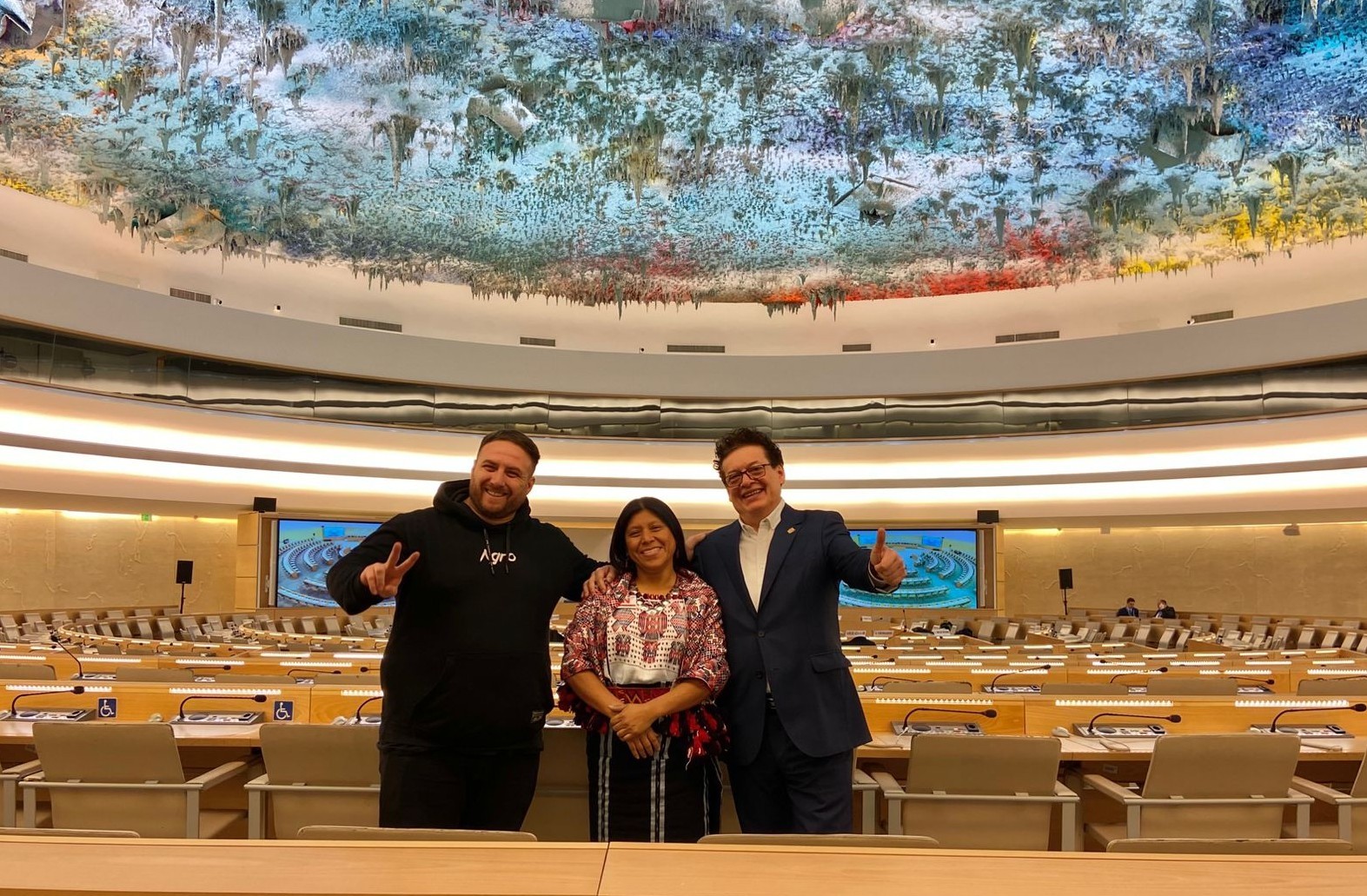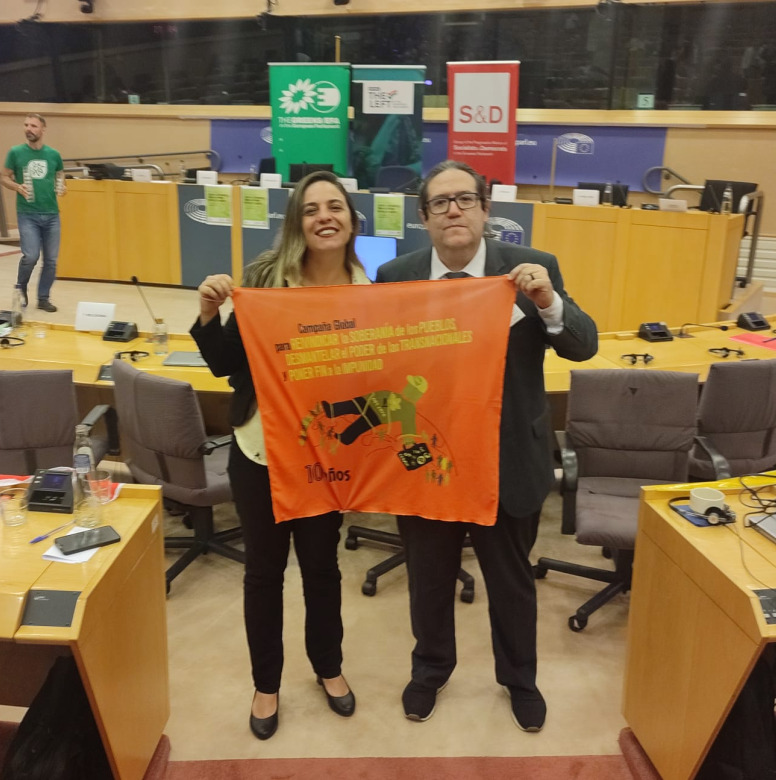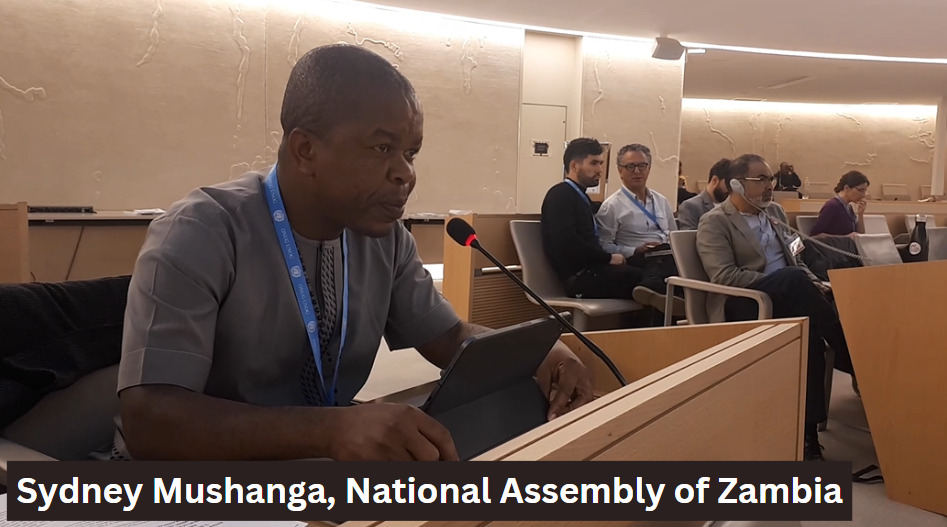Representatives worldwide supporting the UN Binding Treaty on Transnational Corporations with respect to Human Rights
Call of People’s Representatives Worldwide
June 2014 marked a historical milestone in the resettlement of Transnational Corporation’s (TNCs) regulation back onto international agendas. The UN Human Rights Council established an Open Ended Inter-governmental Working Group (OEIGWG) for the development of a legally binding treaty on TNCs and other business enterprises with respect to human rights. The goal was to put an end to the global loopholes and ensure that companies are fully accountable for human rights violations and environmental crimes. The overcoming of current voluntary frameworks of social corporate responsibility represents a key steppingstone in order to make global economy fit for people’s rights and wellbeing and stop corporate impunity.
In October 2020 the 6th OEIGWG Session will take place. Whereas the OEIGWG must continue the negotiations on the new instrument, the under signatories, as worldwide parliamentarians:
- Highlight that our planet needs the Binding Treaty to balance the unfair consequences of unregulated globalisation, which has generated asymmetries of power between States, communities, individuals and corporations in terms of access to justice and the protection of people’s human rights, especially in the poorest regions of the world;
- Applaud, therefore, the initiative of Ecuador and South Africa, and the efforts showed by other countries which are supporting the process towards the achievement of an international Binding Treaty to overcome TNC and other business enterprises’ impunity;
- Urge that adequate conditions are put in place so that the open and participatory process that is being developed by the OEIGWG, in which not only States, but also international organisations, civil society organisations, affected people, scholars and other relevant stakeholders are involved,
- Stress that the future Treaty should create specific mechanisms that strengthen both national judicial systems, as well as international cooperation and monitoring to reinforce State responsibility in providing victims’ access to remedy and prevent the reproduction of violations of human rights derived from TNCs operations. We stress the need for binding principles that protect human rights and guarantee corporate responsibility by asserting the primacy of human rights over trade and investment agreements, and by means, among others, of legally enforceable due diligence obligations;
- Insist that this Treaty must play an important role in addressing worker’s concerns rooted in labour rights violations perpetrated by TNCs in global value chains. We share ITUC’s view that enforceability of labour standards is a sine qua non condition to restore imbalances between highly privileged investor rights and peoples’ labour and human rights.
Therefore we urge states, –and regional organisations–, to actively engage in this UN process and to work towards an effective and legally binding international instrument on TNCs and other business enterprises with respect to human rights, in order to ensure that people’s dignity, as enshrined by universal political, economic, social and cultural rights, is prioritised and guaranteed worldwide over private profits.
First signatories
Helmut Scholz
Member of the European Parliament
Lilian Galán
Member of the Parliament of Uruguay
Charles Santiago
Member of the Parliament of Malaysia
Manon Aubry
Member of the European Parliament
Fathi Chamkhi
Former Member of the Parliament of Tunisia
Inmaculada Rodríguez-Piñero
Member of the European Parliament
Gabi Zimmer
Former GUE/NGL President
Ernest Urtasun
Member of the European Parliament
Miguel Urbán
Member of the European Parliament
Marlyn Alonte-Naguiat
Member of the House of Representatives of Philippines
Carlo Sommaruga
Member of the Council of States of Switzerland
Claudia Roth
Vice-President of the German Bundestag
Latest News
UN Binding Treaty for Transnational Corporations on Human Rights: the view of The Left in the EP (October 2019)

Congresistas Del GIN Hacen Llamado A Parlamentos Del Mundo Legislar Sobre Derechos Humanos Y Empresas
#TratadoVinculante Ginebra, Suiza, 17 de diciembre, 2024. En el marco de la 10ª sesión del grupo de trabajo intergubernamental para la aprobación de un tratado internacional jurídicamente vinculante sobre las empresas transnacionales y derechos humanos, la delegación presente de la Red Interparlamentaria Global (GIN) que apoya este tratado, llevó a cabo un evento paralelo […]

A new EU-Latin America trade relationship for the 21st Century
Parallel to the European Union – Community of Latin American and Caribbean States Summit (EU-CELAC), 17-18th July, Members of the European Parliament and more than 50 civil society organizations, movements, unions and peasants co-organized a half-a-day Conference to review the effects of over two decades of free trade agreements (FTAs) between the EU and Latin […]

GIN Latin American front for a strong and effective Binding Treaty
(Español abajo) Watch the live transmission here. *** On May 12th, 2023, GIN members Alirio Uribe and Karmen Boscán, Colombia, convened a meeting at the Colombian Parliament together with the Global Campaign and the Jornada Continental. GIN members Lilian Galán, from Uruguay, and Federico Fagioli, from Argentina, came all the way to Colombia to attend […]

Interview with Lilián Galán, Uruguayan MP and GIN member, on the Binding Treaty
Uruguayan MP Lilián Galán spoke to one of the most popular radios from Uruguay, M24, asserting the importance of the BT process to countries form the Global South. Listen here to the full interview (in Spanish)

Sydney Mushanga, from the National Assembly of Zambia, at the UN: “The voices coming from Africa should resonate as much as any other”
Watch the video here (transcript) Thank you very much, Honourable Chairperson. Firstly, a big thank you to you for according me a chance to add a word to the subject currently under discussion. My name is Mushanga Sydney, a Member of Parliament in the National Assembly of Zambia, I’m here as a Member of the […]
